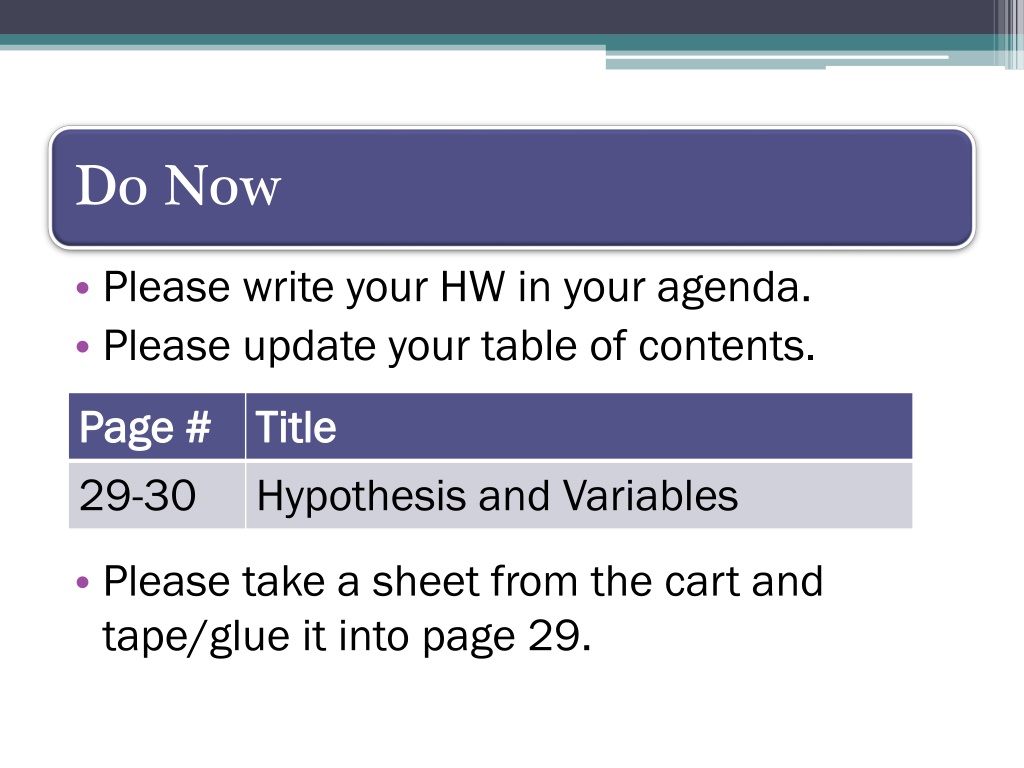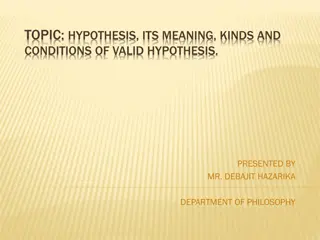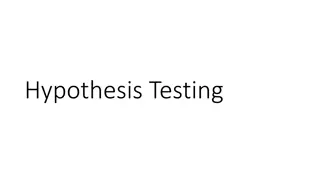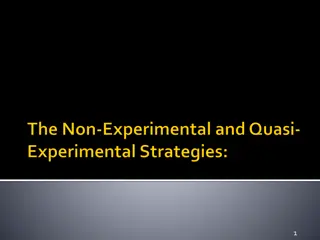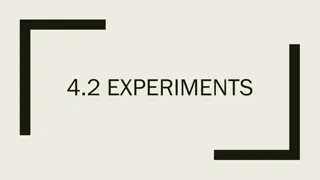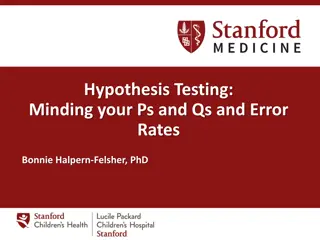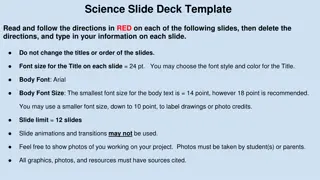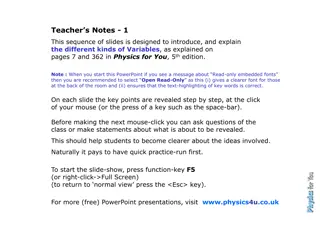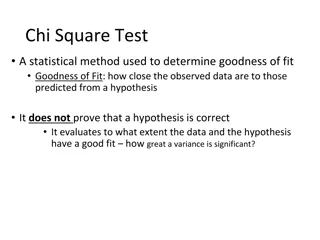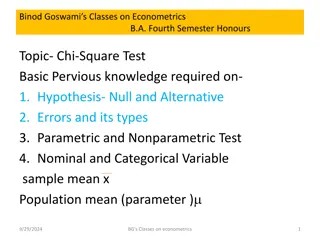Understanding Variables, Hypothesis, and Experimental Design
Variables play a crucial role in experiments, with the independent variable being the condition that is changed, and the dependent variable being the factor affected by the change. Control variables must remain constant. Hypothesis is an educated guess that can be tested. Explore the relationship between variables, hypothesis formulation, and experimental design in this informative content.
Download Presentation

Please find below an Image/Link to download the presentation.
The content on the website is provided AS IS for your information and personal use only. It may not be sold, licensed, or shared on other websites without obtaining consent from the author. Download presentation by click this link. If you encounter any issues during the download, it is possible that the publisher has removed the file from their server.
E N D
Presentation Transcript
Do Now Please write your HW in your agenda. Please update your table of contents. Page # Page # 29-30 Title Title Hypothesis and Variables Please take a sheet from the cart and tape/glue it into page 29.
What is a variable? A variable is any factor that can be controlled or changed in an experiment.
What is a control variable? A control variable is a part of the experiment that must stay the same throughout.
Independent Variable An independent variable is a condition or factor that you change you change in the experiment. Example question: In what temperature would corn grow the tallest? Example question: How much time do students need to study to get an A? Example question: What brand of athletic shoes allows for the fastest time in a 5k race?
Dependent Variable Dependent variable is the factor of the experiment that is changed by the independent variable. Example question: In what temperature would corn grow the tallest? Example question: How much time do students need to study to get an A? Example question: What brand of athletic shoes makes for the fastest time in a 5k race?
Think of this Think of this Independent variable = CAUSE Dependent variable = EFFECT
Pick two questions and answer on page 30: 1. Which type of sponge absorbs the most amount water? IV: 2. Which type of garbage bag can hold the greatest weight before ripping? IV: 3. How does temperature affect the speed a pillbug can run? IV: 4. How does the amount of food affect the number of bird offspring? IV: DV: DV: DV: DV:
Hypothesis An educated guess based on prior knowledge, observations, theories, etc. that can be tested using an experiment. A good hypothesis is testable. Is this a good hypothesis? If a giraffe stretches its neck to reach leaves on a tree, then its neck will remain long and its offspring will also have a long neck. Just because a hypothesis is good, doesn t mean it has to be right!
Writing a Hypothesis Has to be written in the if then format. The if then format helps to show a clear relationship between the independent variable (cause) and dependent variable (effect). Your hypothesis should be specific! Example: If a plant receives unlimited natural sunlight, then it will grow taller than a plant that receives natural sunlight for 2 hours a day. Nonexample: If plants get more natural sunlight, then they will grow the tallest. *Rule of thumb: If Cause, then Effect*
T-Chart on pg. 30: Write 1 example & 1 non-example Does the amount of junk food RMS students eat at lunch affect the number of students that go home sick? Yes, because if students eat too much junk food, they will get sick. If students eat at least two pieces of junk food a day at lunch then they will go home sick. If students eat 5 pounds of junk food over a week of school then they will go home sick. If junk food affects sick kids then they shouldn t serve it. If students get sick then they ate only junk food. If students eat junk food then they won t get sick. If the students eat junk food and get sick then the junk food is bad for them. If students get sick from eating junk food then they will throw up.
Activity Open up your notes. On the inside, cut out all the variables and sort them by independent variables and dependent variables.Glue them down. Glue in the hypothesis section and label each one: for good hypothesis X for bad hypothesis Here are the questions to help you decide between IV and DV: How does the amount of gas in a car affect the distance traveled? What effect does temperature have on plant growth? How does skateboard weight affect its speed? Does the number of hours shopped influence the amount of money spent at the mall?
Exit Slip Write your name at the top of the exit slip and answer the 3 questions related to this testable question: Would webbed fingers or webbed toes more greatly increase the speed of a swimmer doing the freestyle stroke. What is the independent variable? What is the dependent variable? Make a hypothesis about the question.
Inquiry Lab Checklist For homework, write your final question into the checklist on page 27. Identify the independent and dependent variables. Write your own hypothesis.
